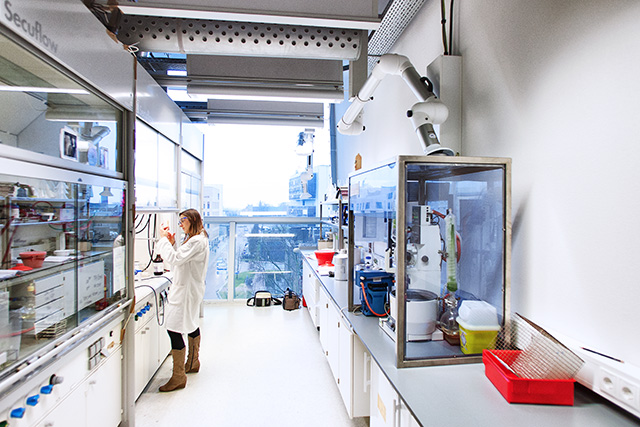PhD candidates hoping for coronavirus compensation
For PhD candidates, the coronavirus crisis has created uncertainty, with almost all labs at the university closed. With each passing week it becomes more likely that they will not complete their PhD theses by the anticipated deadline. Universities and the Netherlands Organisation for Scientific Research (NWO) are drawing up guidelines for compensation.
Normally, microbiologist Wouter Lenferink would be in the lab now, knee-deep in experiments. He’d be growing bacteria in a sealed glass jar and continually changing their nutrients, and then measuring what gases the microorganisms produce. This allows us to learn new things about what makes a bacterium tick – enough to fill an entire PhD thesis.
But since mid-March, Lenferink’s experiments have been shut down: the lab can only be used for essential things, such as keeping important bacterial cultures alive. ‘As an alternative, I’ve already started working ahead. I’m reading up on new methods of analysis and taking a biochemistry course. But this ultimately doesn’t make up for the time that’s being lost now.’
Career Futures
Lenferink isn’t the only one. Many PhD candidates are currently unable to conduct research because of the coronavirus measures, especially if their work involves performing experiments in the lab. It delays their PhD track. For PhD researchers working through a temporary contract, usually four years, this kind of delay can have far-reaching consequences. If they want to continue their scientific careers, a solid thesis with many publications increases the likelihood of breaking into their field or being awarded a research grant. The coronavirus crisis leaves them at a disadvantage.
This is why many PhD candidates are hoping for additional time or funding from the university or from grant providers, such as the NWO, to compensate them. For example, DFG, NWO’s German sister organisation, is already offering its PhD candidates the opportunity to receive additional funding for three months if the coronavirus crisis has led to delays.
Medical Care
‘The Netherlands PhD candidate network (PNN) is receiving many concerned messages from individual researchers,’ says Chair Lucille Mattijssen. ‘Not only from people whose labs are closed, but also from medical PhD candidates. Some of them are currently unable to conduct research because they’re busy providing medical care in hospitals.’
The PNN recently released a statement in which it calls on universities and sponsors to take compensation measures. Mattijssen: ‘We’re hoping for a personalised approach. Solutions should be aimed at solving the individual needs of PhD candidates. This could be a contract extension, but also adjustments to the PhD graduation requirements. For example, changing the required number of articles needed to receive one’s PhD from four to three articles.’
‘PhD candidates in the final six months of their programme are incredibly stressed’
The PhD candidate council in Nijmegen (PON), the Nijmegen counterpart of the PNN, is currently holding a survey amongst young researchers to take stock of the problems they are facing. ‘The current situation is different for everyone,’ says board member Arushi Garg in an e-mail. ‘We want to map that out properly before determining our standpoint.’
Microbiologist Lenferink is hopeful that the consequences of the crisis will not impact his PhD thesis too much. ‘Fortunately, I’m only in the second year of my PhD and still have plenty of opportunity to make up for lost time after all this. But I imagine that with only six months left to go, I’d be terribly stressed.’
Universities, the NWO, and interest groups to create Compensation Guidelines
In a joint statement, NWO, the universities, academic medical centres, and advocates for young researchers announced measures on Wednesday afternoon for researchers who are in trouble because of the coronavirus crisis. In the coming weeks, they will draw up a series of guidelines that allow institutions to decide on a case-by-case basis how to help a researcher, such as via a contract extension or amended PhD requirements. The general rule is that health is more important than research, that research should reasonably be given the opportunity to be completed, and that a tailored approach is necessary to properly compensate for a wide range of problems. The research institutes are in talks with various ministries, companies, and international grant providers for funding, but it is not yet clear who will contribute.




